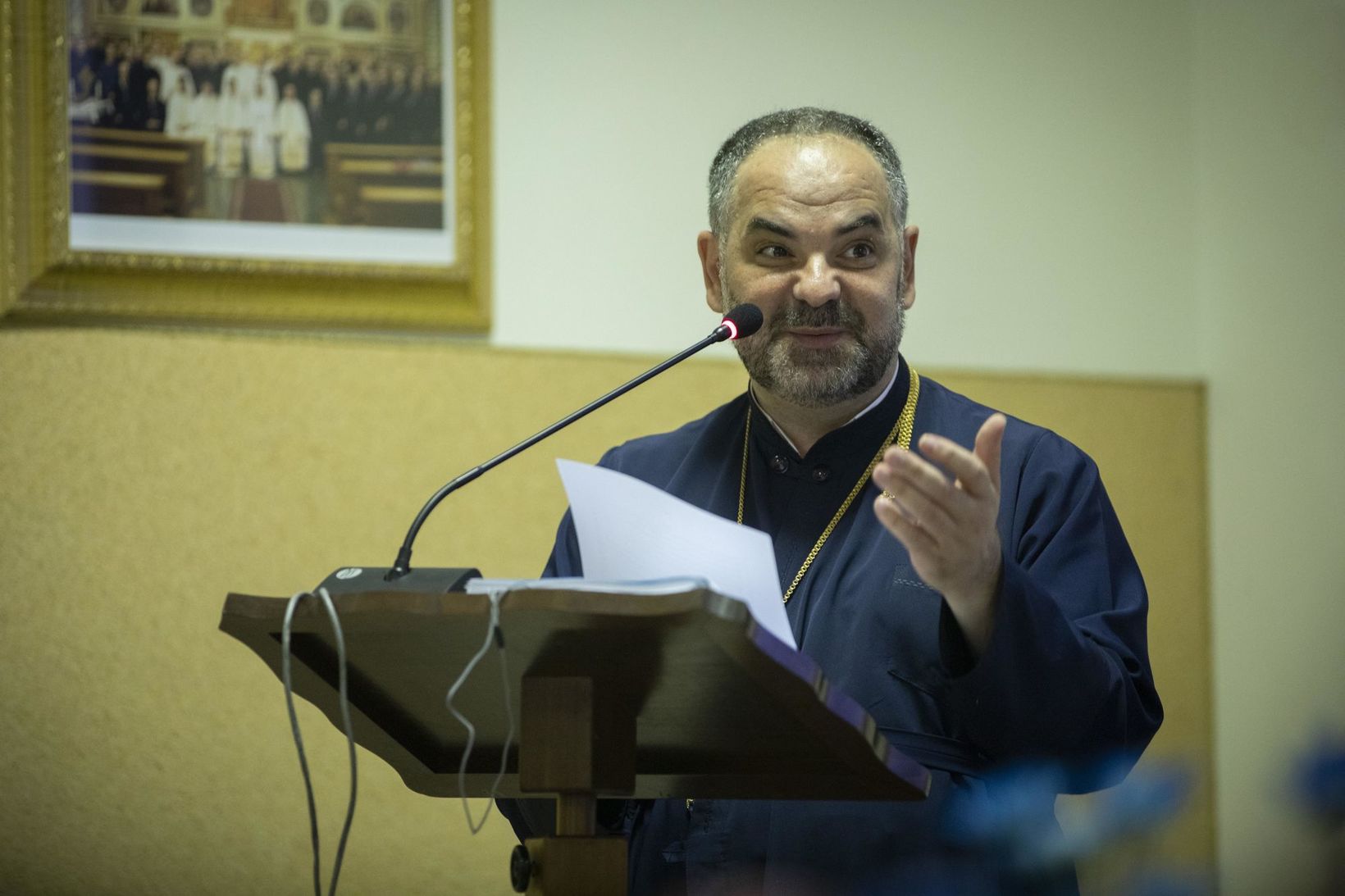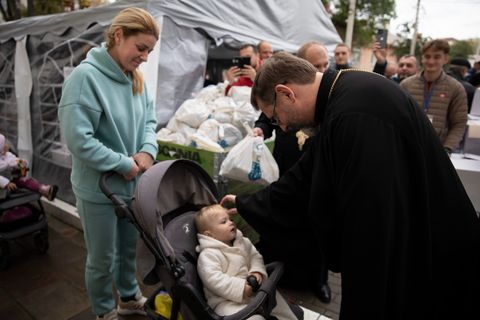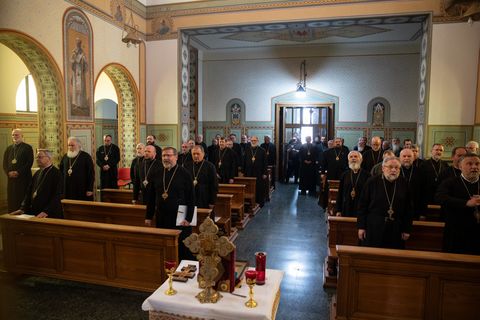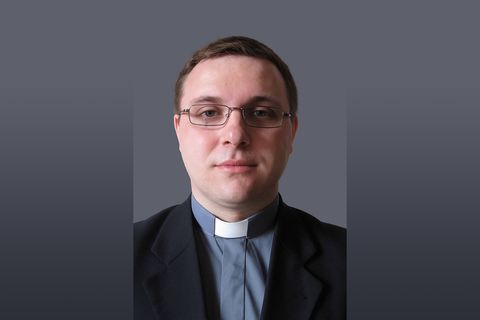UGCC Works to Unify Liturgical Texts: Archieratikon, Euchologion, and Divine Office Updated
“We have high hopes that our Church will soon have a renewed Divine Office and a new edition of the prayer book Come, Let Us Adore, in which there will no longer be any discrepancies in the liturgical texts,” emphasized Bishop Hryhoriy Komar, chairman of the Patriarchal Liturgical Commission of the UGCC, during the commission’s report at the morning session of the Synod of Bishops of the UGCC on July 7, 2025.
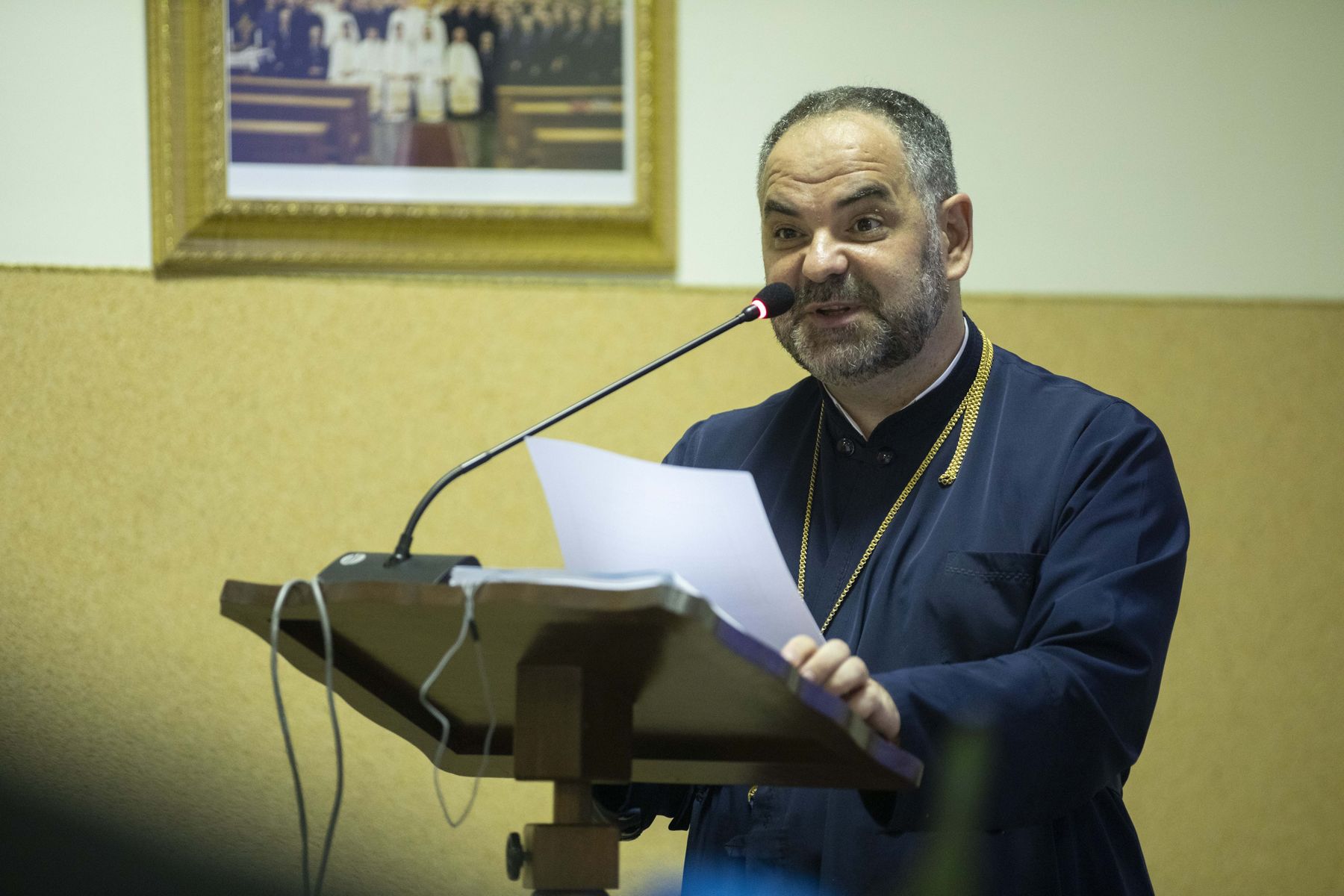
The regular working session of the Synod of Bishops of the Ukrainian Greek Catholic Church, which is taking place from June 30 to July 10 at the Ukrainian Pontifical College of St. Josaphat in Rome, has been focused on liturgical matters.
Bishop Hryhoriy Komar, chairman of the Patriarchal Liturgical Commission, structured his presentation around three key sections.
The first section addressed the updated Archieratikon (Hierarchical Service Book), a liturgical text used by bishops in their ministry. The Synod concluded that the revised edition should be published in two volumes.
“The first volume will contain the rites of the Divine Liturgies and other commonly used pastoral services. The second, known as the Archiepiscopal Euchologion, will include more rarely used rites and blessings performed by bishops. The bishops carefully reviewed the Commission’s work and suggestions, examined the proposed texts, and gave their blessing for further development,” said Bishop Hryhoriy.
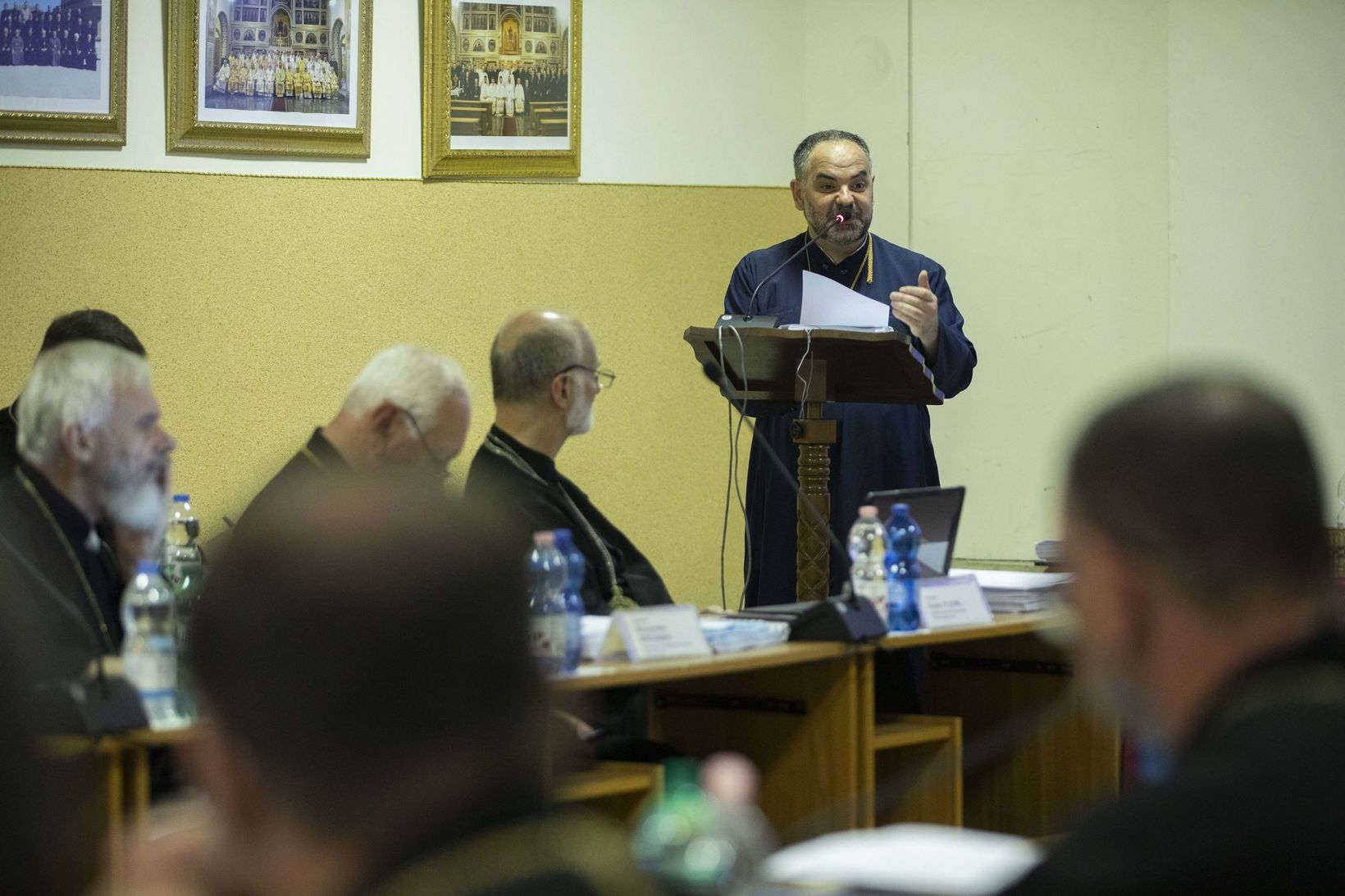
The second topic concerned the revision of the Euchologion. Bishop Hryhoriy noted that priests had repeatedly expressed to their bishops the need for new rites and blessings.
“To meet this need, the Liturgical Commission has prepared a series of new texts. During our working meeting, we were able to discuss them, receive feedback, and consider specific proposals, which the Commission will strive to incorporate going forward,” he explained.
Among these new rites are a Moleben for children, a Moleben for national holidays, a Moleben for the preservation of God’s creation, and a Moleben for seeking employment. The updated Euchologion will also feature blessings for hospitals, businesses, and food establishments, as well as the consecration of chapels and various funeral rites, including those for unbaptized children.
“These additions will help supplement the liturgical texts we already have,” the bishop stated.
Regarding the funeral rite for unbaptized children, he explained that it is based on the standard funeral service for children, with minor adaptations to the prayers and texts—remaining entirely faithful to the spirit of the Church’s prayer tradition.
“We hope that we will soon be able to present these texts, along with the Synod’s previously reviewed proposals, for final approval by our Patriarch, His Beatitude Sviatoslav,” he added.
The third part addressed the updated Divine Office. Bishop Hryhoriy recalled that last year’s Synod formed a joint working group, which included representatives from the Liturgical Commission and the Order of St. Basil the Great. According to him, the group has achieved very fruitful results.
“Our goal was to ensure consistency across all liturgical texts and eliminate discrepancies. The work is nearing completion. The Synod has approved our results and blessed its continuation. We are optimistic that our Church will soon have a renewed Divine Office and a new edition of Come, Let Us Adore without the textual inconsistencies that have previously existed,” he said.
In response to a question about how liturgical texts are refined, Bishop Hryhoriy emphasized that even new rites must be firmly rooted in the Church’s prayer tradition.
“Most often, these are adaptations of existing rites to reflect current circumstances, with only slight modifications to the prayers,” he noted.
As an example, he mentioned the ongoing work on the burial rite for fallen soldiers.
“We are currently developing this rite based on the Byzantine tradition—specifically, a canon once compiled by Byzantine theologians. Naturally, we must reflect deeply on the sacrifice of our soldiers, but we also have a duty to remain true to our liturgical heritage,” concluded the chairman of the Patriarchal Liturgical Commission of the UGCC.
Press Service of the Secretariat of the Synod of Bishops of the Ukrainian Greek Catholic Church